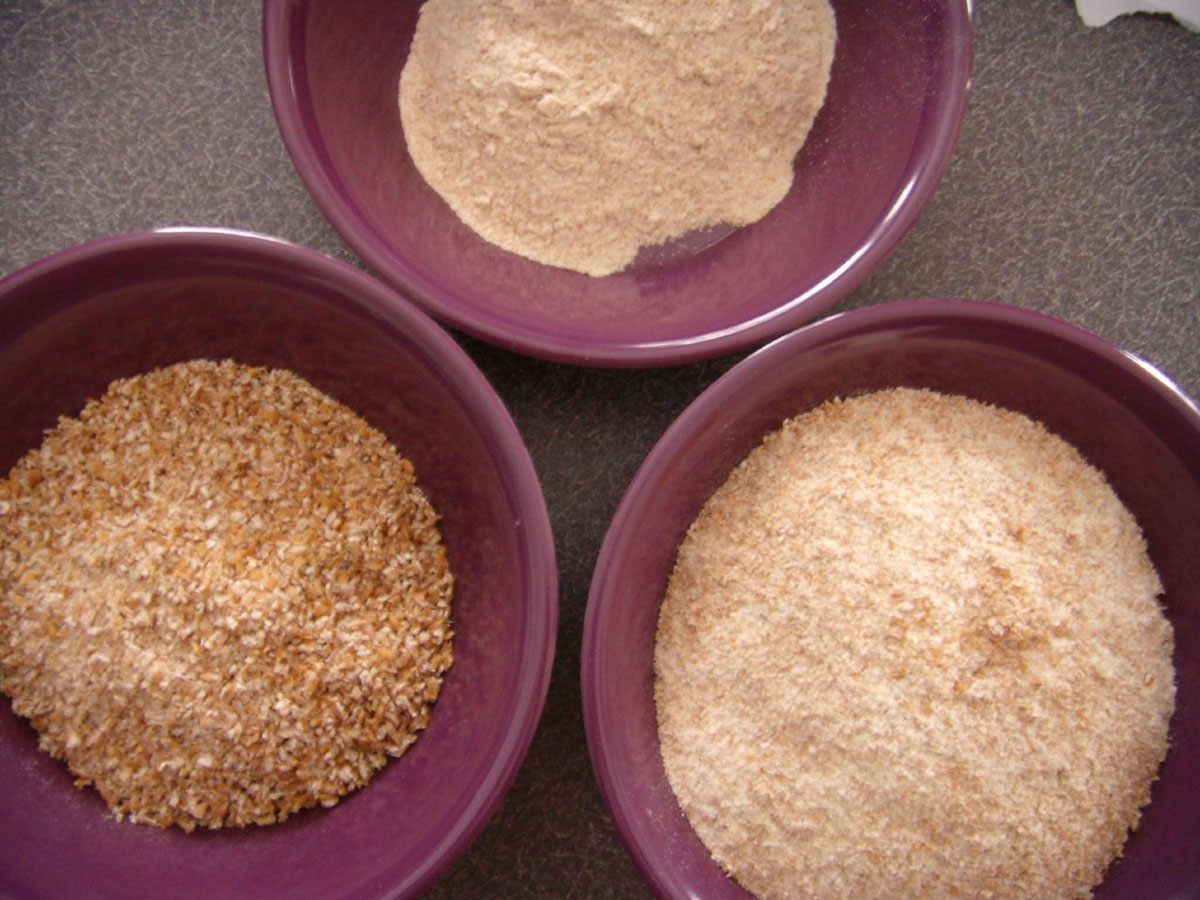Table of Contents
More Health Benefits of Whole Grains
We now know all about the cardiovascular benefits of whole grains, but are there any other health benefits to eating the whole grain rather than refined white carbohydrates?
A 2010 review by the American Society for Nutrition found that consumption of whole grains led to an approximate reduction in the risk of Type 2 Diabetes by 21%. Far from being the stereotypical minor nuisance associated with overeaters, Type 2 Diabetes can be a serious condition leading to heart disease, kidney damage, damage to nerves, foot damage leading to amputation, eye damage and even Alzheimer's disease.

A 2004 review by Joanne Slavin theorised that one reason whole-grains are so beneficial for Type 2 Diabetes is that their slow-digestibility prevents sudden spikes in blood glucose levels. Poor management of Diabetes is responsible for many complications.
The same 2004 review suggested that whole-grains are beneficial for weight management. A ten-year follow-up study by Ludwig and colleagues (1999) found that those patients who ate more whole-grains gained 3-6kg less than those who ate fewer whole-grains. Slavin suggests this may be due to the fact that whole-grains help you feel fuller for longer.
The 2010 review by the American Society for Nutrition also found a 21% reduced risk of colorectal cancer in people who eat more whole grains. Bowel cancer is the fourth most common type of cancer, and still has only a 57% ten-year survival rate. In her 2004 review, Slavin says: "Dietary factors, such as fibre, vitamin B6 and phytooestrogen intake and lifestyle factors such as exercise, smoking and alcohol use, which are controlled for in most epidemiological studies, do not explain the apparent protective effect of whole grains against cancer, again suggesting it is the whole-grain ‘package’ that is effective."
READ The Value Of Pseudo-Cereals Versus Other Grains
Another benefit of eating plenty of healthy whole-grains, in Slavin's 2004 review, is that whole-grains may reduce your risk of dying of all causes. A Norwegian study by Jacobs and colleagues (1999) showed that men and women who eat wholegrain bread have a lower mortality rate, while Liu and colleagues (2003) found that eating wholegrain breakfast cereal reduced your risk of dying. The same wasn't true of refined breakfast cereal.
What's a portion of whole-grain?
If you're interested in eating the recommended three of more portions (48 g) of whole grains every day, it can be hard to know where to start. Here's our useful guide to what makes one portion:
- 1/2 whole-grain bagel (45g)
- 125ml/ 1/2 cup barley (cooked)
- 1 slice of whole-grain bread (35g)
- 30g cold whole-grain cold cereal
- 150g/3/4 cup whole-grain cooked, hot cereal (e.g. oatmeal)
- 30g wholewheat/rye crackers
- 125ml 1/2 cup whole-grain/brown rice pasta/noodles (cooked)
- 125ml/ 1/2 cup quinoa (cooked)
- 125ml/ 1/2 cup brown/wild rice (cooked)
- 1/2 wholewheat tortilla
So, should I switch to whole-grains?
Switching white breads, pastas and rice to tasty whole-grain alternatives is such a small step to take, but it's one that could make huge improvements to your health, now and in the future.
As Victoria Taylor, senior dietician at the British Heart Foundation, says, "Eating wholegrains is a simple change we can make to...help lower our risk of heart and circulatory disease."
So, if you make one change today, why not make it whole-grain.
- www.nlm.nih.gov/medlineplus/news/fullstory_159334.html
- www.hc-sc.gc.ca/fn-an/food-guide-aliment/choose-choix/grain-cereal/serving-portion-eng.php
- wholegrainscouncil.org/files/ASNsummary2010.pdf
- wholegrainscouncil.org/whole-grains-101/what-are-the-health-benefits
- www.dailymail.co.uk/health/article-3639113/Daily-bowl-muesli-slashes-risk-dying-heart-disease-quarter.html
- wholegrainscouncil.org/files/SlavinArticle0504.pdf
- www.cancerresearchuk.org/health-professional/cancer-statistics/statistics-by-cancer-type/bowel-cancer
- www.mayoclinic.org/diseases-conditions/type-2-diabetes/symptoms-causes/dxc-20169861
- Photo courtesy of fitkitchn: www.flickr.com/photos/43551706@N02/4012829924/
- Photo courtesy of espring: www.flickr.com/photos/espring/2300519743/
- Photo courtesy of fitkitchn: www.flickr.com/photos/43551706@N02/4012829924/


Your thoughts on this